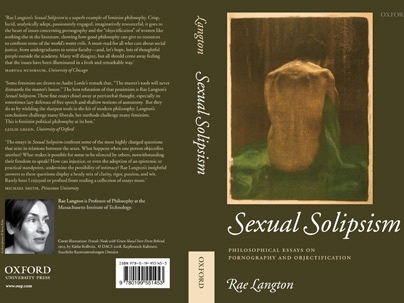It's unusual for philosophers to publish many books these days, which is why the publication of eight books by eight of the 12 MIT philosophy faculty in the span of a year marks a noteworthy chapter for the Institute's philosophy section.
"Philosophers, especially analytic philosophers, tend to publish articles rather than books," says Richard Holton, professor and head of the philosophy section in the Department of Linguistics and Philosophy. So, he says, it is very unusual to have so many philosophy books -- both published and upcoming -- from MIT at one time.
The themes of the eight books differ widely -- ranging from the philosophy of Fellini to free will to the epistemology of pornography -- but "they are all careful, analytic works," says Holton. "In that sense they are all very much MIT products, and they have all benefited from much discussion in the department here. They show how very diverse topics can benefit from what is recognizably the same approach. It is a feature of philosophy that, unlike most disciplines nowadays, we remain generalists."
Holton's own book, "Willing, Wanting, Waiting," will be published in July by the Oxford University Press. The other books by philosophy faculty are: "Our Knowledge of the Internal World," by Professor Robert Stalnaker (Oxford University Press, September 2008); "Normativity," by Professor Emerita Judith Jarvis Thomson (Open Court, December 2008); "Cinematic Mythmaking: Philosophy in Film," by Professor Irving Singer (MIT Press, September 2008); "Thoughts: Papers on Mind, Meaning, and Modality" by Professor Stephen Yablo (Oxford University Press, January 2009); "Sexual Solipsism: Philosophical Essays on Pornography and Objectification," by Professor Rae Langton (Oxford University Press, January 2009); "Disjunctivism: Contemporary Readings," by Professor Alex Byrne and graduate student Heather Logue (MIT Press, March 2009); "On Myself and Other Less Important Subjects," by Associate Professor Caspar Hare (Princeton University Press, September 2009).
Holton cautions against reading too much into the timing: "I wish there were some intriguing explanation, but I think it's basically coincidence."
A version of this article appeared in MIT Tech Talk on February 25, 2009 (download PDF).







